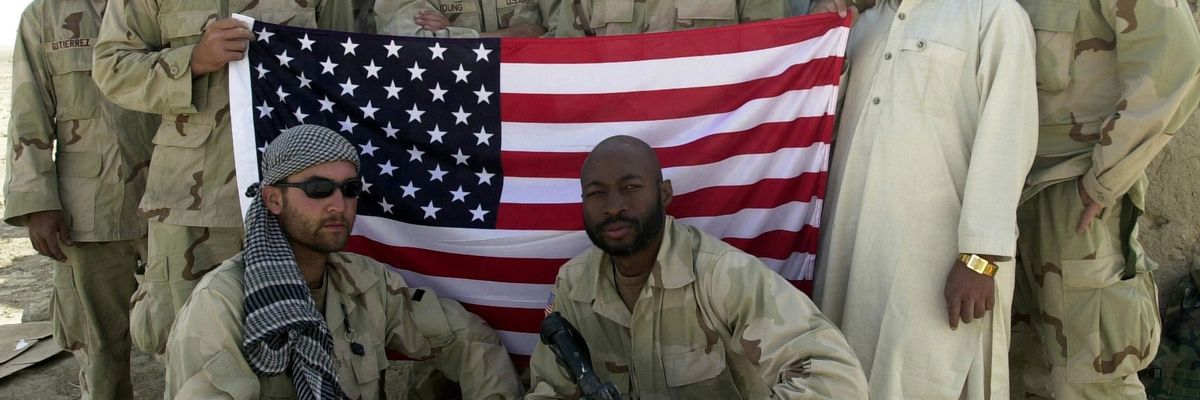Today, the Biden administration announced “Operation Allied Refuge” to begin evacuating vulnerable former Afghan interpreters and their families from Afghanistan.
For twenty years U.S. policy there undermined achievable goals by pursing lofty ideals through unaccountable spending and permanent troop deployments. Going forward, American policymakers must accept the limited ability of Washington to shape conditions on the ground and prioritize actions that are achievable. Evacuating at-risk translators and their families is something entirely in the control of President Biden and should be done with speed and dispatch. This is an opportunity for the United States to lead and other NATO partners should follow suit.
The United States has evacuated partners in past conflicts ranging from Vietnam to Kosovo. This mission is achievable, consistent with American values, supported by a bipartisan group of lawmakers and veterans groups, and won’t place Americans at risk. In other words, it is an example of the kind of objective that Secretary Blinken pledged to the American people to carry out. There is also growing support for offering refugee status to a limited number of individuals from Afghan civil society who supported the U.S. mission through their work and face credible death threats. Such measures should not be cynically misconstrued as dooming the fledgling peace process to failure, lack of confidence in the resolve of the Afghan security forces, passive acceptance of a Taliban takeover, or a misguided inclination to save the world. Rather, it is a recognition that specific individuals who assisted the United States are at grave risk and we are in a position to help.
The appointment of Ambassador Tracey Jacobson to lead the State Department’s effort to evacuate former Afghan interpreters will offer a much needed point person as former interpreters who are vulnerable to reprisals by the Taliban find themselves in the eleventh hour of the U.S. troop withdrawal. The priority now should be to evacuate all applicants for the Special Immigrant Visa (SIV) program and not leave behind anyone simply because they are stuck in an earlier phase of a burdensome bureaucratic process. A preference should be given to relocating individuals to U.S. territory.
The Biden administration has received criticism from opponents of the withdrawal for primarily focusing on securing the U.S. Embassy, continued security for Kabul’s airport, and evacuating former interpreters. This despite the fact the United States continues to fund the Afghan security forces. But maintaining a diplomatic presence, ensuring Kabul remains connected to the world, providing the Afghan security forces with the means to fight, and protecting Afghans who directly supported the U.S. military mission are the most tangible ways that the Biden administration can continue to support Afghanistan.
















